The Silencing of Student Voices
Over the last year, student perspectives have been repeatedly ignored, dampening the impact young people have on their learning environment.
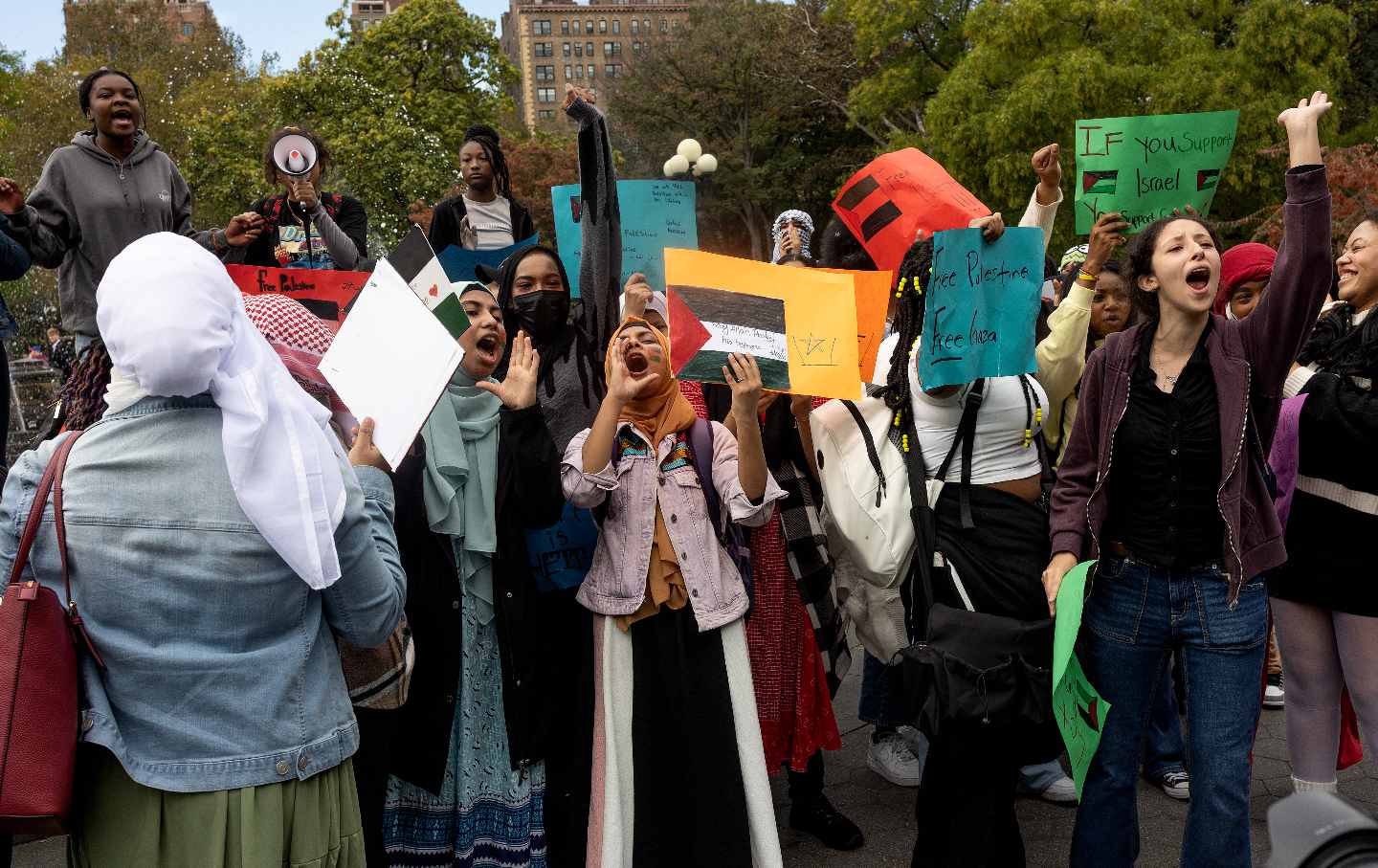
High school students join a walkout to protest the Israeli bombardment of Gaza.
(Andrew Lichtenstein / Getty)For this series, five young journalists responded to our calls for articles detailing critical issues that impacted young people this year. The group of high school and young college writers pitched and reported on urgent topics like lack of access to mental health support for homeschooled students, student voices being silenced in schools, book bans, attacks on LGBTQ+ students, and school shootings. Of course, these are just a fraction of the issues that shape the lives, conditions, and experiences of young people—not to mention how these issues intersect with each other. We received more important pitches than we could publish this round. As we close out the year, this package centers the work of young journalists reporting on what affected their schools, communities, and peers in 2023.
—Rainesford Stauffer
When Madison Harden was a junior at Lake Highland High School in Texas, students rallied to protest the administration’s inaction to multiple racist incidents, including unequal treatment of students and teachers using slurs. “It was years of experience and it got to the point where it was too much and boiled over, and rightfully so, they held a protest,” says Harden.
Afterwards, she noticed that, despite having a diverse student body, her school had never hosted any multicultural events. In response, the administration suggested a teacher-run school-wide event to celebrate Black History Month. For the event, a teacher proposed a historical reenactment of the transatlantic slave trade, asking Black and white students to dress up as slaves and slave masters.
Harden believes that if the administration had consulted with students, the offensive situation could have been prevented. “That was a moment where I was like, see, this is when you need to listen to students,” Harden says. She has been trying to create spaces where she can be impactful on school policy, but adds “the education system has reminded me constantly, possibly, again, that my voice is not going to matter.”
This example of student perspectives being ignored is just one of many from this past year. Throughout 2023, high school students vocalized their opinions on everything from LGBTQ+ rights, book bans, gender bias in dress codes, and more.
After October 7, for example, the Beacon School in Manhattan, my own high school, sent a school-wide address over e-mail calling Palestine one of the “neighboring areas” impacted by the ongoing conflict in which about 20,000 Palestians have since been killed. Some students saw the announcement as an attempt by the administration to erase Palestine’s existence from history. They organized a school-wide walkout on November 9 with over 50 students that ended by joining several other New York City high schools in calling for a cease-fire at a protest in Bryant Park.
Darasima Bankole, a 17-year-old at Douglas County High School in Georgia, says her principal recently banned extracurricular organizations from decorating the halls with handmade flyers. She fears that this is a new way for the administration to dampen the impact students have on their learning environment. A 2022 study published by the American Journal for Education found that an increased responsiveness to student voices leads to “higher GPAs, fewer absences, and less chronic absenteeism.”
“If I had more of a say in what I was learning, I think for sure, I would be more engaged,” said Bankole.
Asmaa Ali, a 17-year-old student at Martin Luther King Jr. Academic Magnet School in Tennessee, echoes the idea that while many schools put students first in theory, it rarely happens in practice. “You can’t say that you support students and their identity, and you see them, but then you try to prohibit expression of religious beliefs, political beliefs, social beliefs,” she said. Ali has been a student in several school districts and thinks that while schools encourage student engagement, they almost never welcome student opinion.
Her school adopted a controversial policy required by the Metro Nashville Public School District: Students cannot sign up for clubs without parental approval. She says this is because the district did not want students signing up for clubs like the Gay Straight Alliance without their parents knowing.
Nationally, politicians and policymakers have passed hundreds of bills giving parents increased power to influence curriculum and resource materials in schools, giving rise to a new parents’ rights movement, raising questions about how much parental opinion should influence school dynamics. “Around the country, we are seeing student and educator voices being silenced in this larger parents’ rights movement, which often places politics over parents anyway,” said Allie Pearce, K-12 policy analyst for the Center for American Progress.
Pearce acknowledges the responsibilities schools have to parents and the government, but points out that there should be a focus on creating democratic environments for students. “Students should be treated as agents of the community and agents of power,” said Pearce. “Everybody is responsible for creating a more inclusive environment, especially students.”
For example, Pearce believes that students having voting power on school boards and school committees—including student representatives—would ensure that students have a voice in shaping educational decisions and policies.
Popular
“swipe left below to view more authors”Swipe →Harden, now a freshman at Howard University, started a club on campus modeled after the Texas organization Young Leaders Strong City that holds a racial equity summit every year to amplify student voices. She created the group to bridge the divide between administrators, educators, and students, believing that change in school systems is possible. “I think it’s going to require administrators and teachers to step outside of their own lens and experience. I think it’s going to require being uncomfortable. And it’s going to require patience, and adaptability.”
Thank you for reading The Nation
We hope you enjoyed the story you just read, just one of the many incisive, deeply-reported articles we publish daily. Now more than ever, we need fearless journalism that shifts the needle on important issues, uncovers malfeasance and corruption, and uplifts voices and perspectives that often go unheard in mainstream media.
Throughout this critical election year and a time of media austerity and renewed campus activism and rising labor organizing, independent journalism that gets to the heart of the matter is more critical than ever before. Donate right now and help us hold the powerful accountable, shine a light on issues that would otherwise be swept under the rug, and build a more just and equitable future.
For nearly 160 years, The Nation has stood for truth, justice, and moral clarity. As a reader-supported publication, we are not beholden to the whims of advertisers or a corporate owner. But it does take financial resources to report on stories that may take weeks or months to properly investigate, thoroughly edit and fact-check articles, and get our stories into the hands of readers.
Donate today and stand with us for a better future. Thank you for being a supporter of independent journalism.
More from The Nation
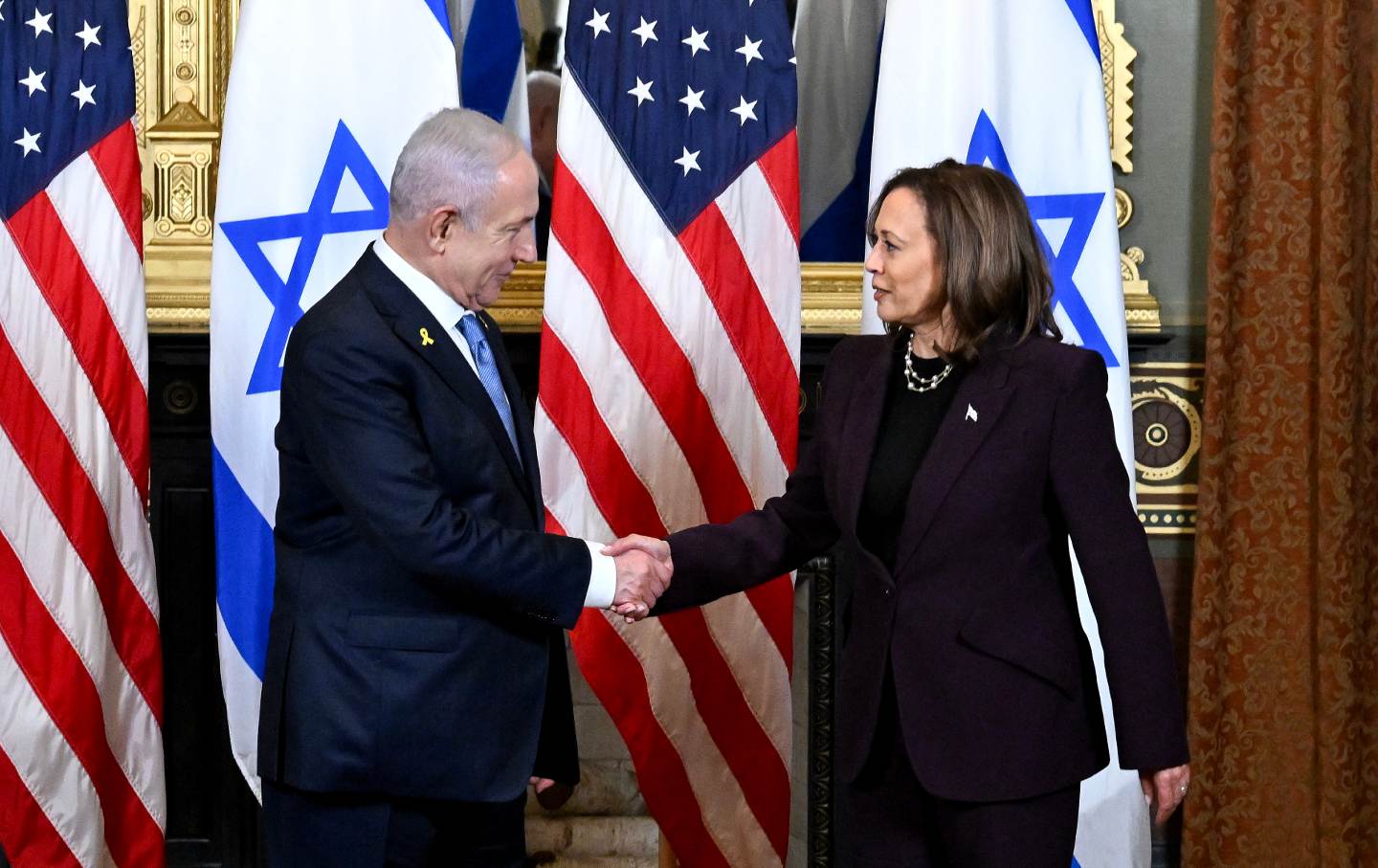
Kamala Harris Will Shift on Gaza Only if We Make Her Kamala Harris Will Shift on Gaza Only if We Make Her
The vice president’s ascension provides an opening for a new approach to the horror in Palestine. But it won’t happen without sustained political pressure.

“They Will Not Erase Us”: The Scene on Capitol Hill During Netanyahu’s Address “They Will Not Erase Us”: The Scene on Capitol Hill During Netanyahu’s Address
The Israeli prime minister rebuked criticism during his speech to Congress, but not without protests from lawmakers, staff, congressional interns, and thousands of others.
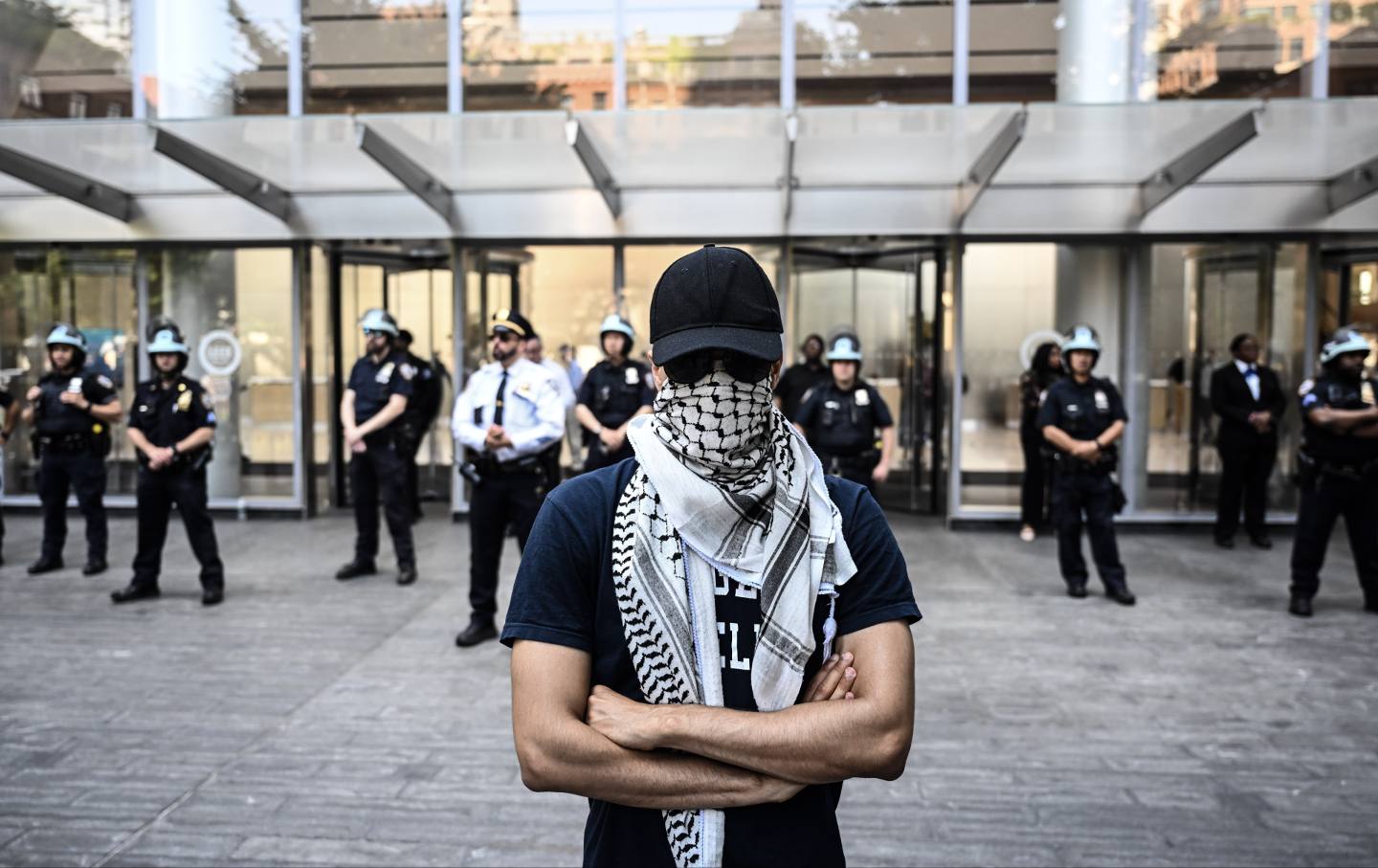
Everything You’ve Heard About the Keffiyeh Is Wrong Everything You’ve Heard About the Keffiyeh Is Wrong
The iconic Palestinian scarf has been demonized as a symbol of Nazi-like hatred. This bigoted nonsense couldn’t be further from the truth.
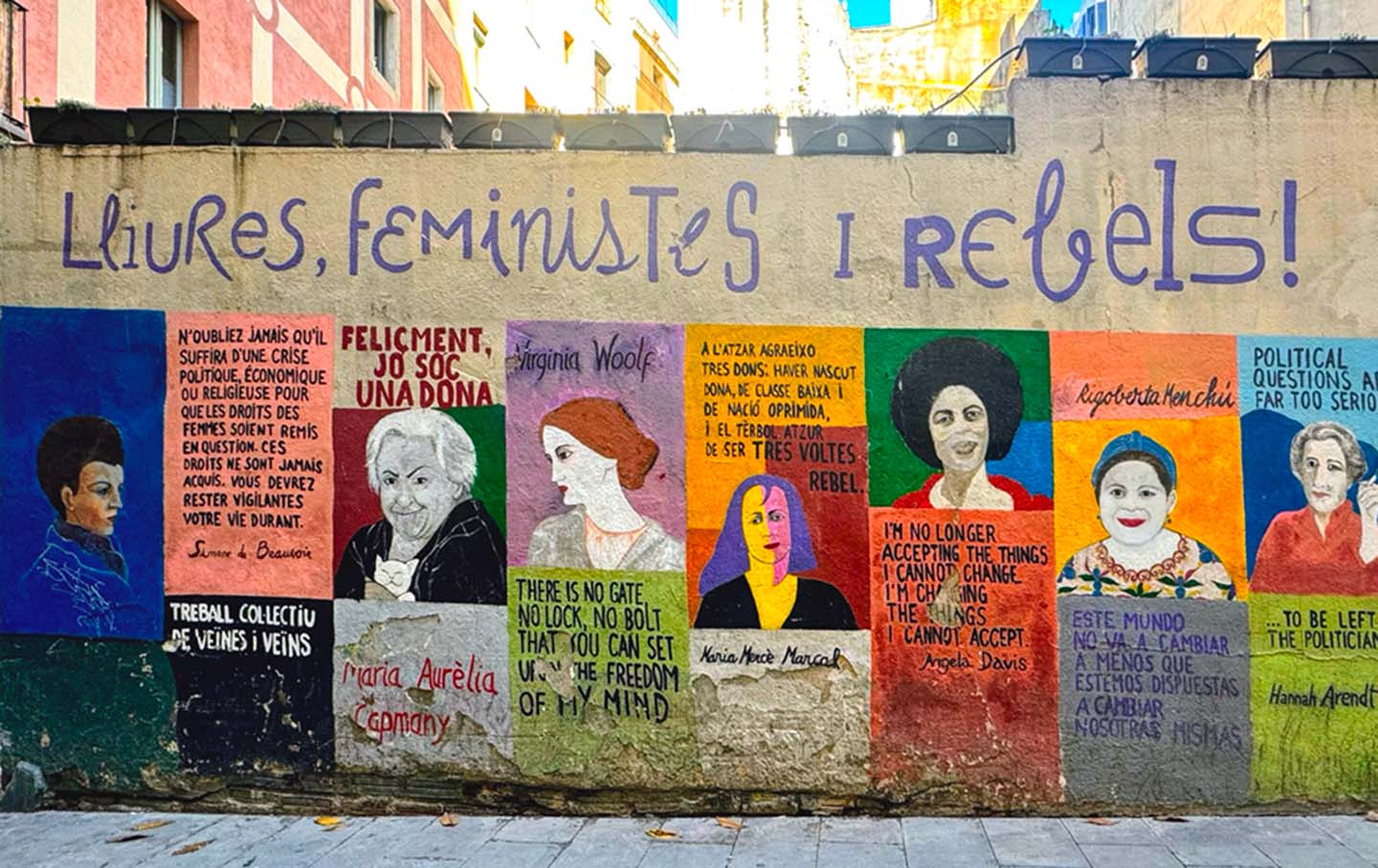
Free, Feminists and Rebels Free, Feminists and Rebels
Notable women: portraits and quotes, street mural, Barcelona, Catalunya, Spain.

From the Moment She Joined a Fight, Jane McAlevey Was in It to Win From the Moment She Joined a Fight, Jane McAlevey Was in It to Win
A bitter foe of “pretend politics,” she always said she wanted “to teach people: Can we have the confidence to win?”
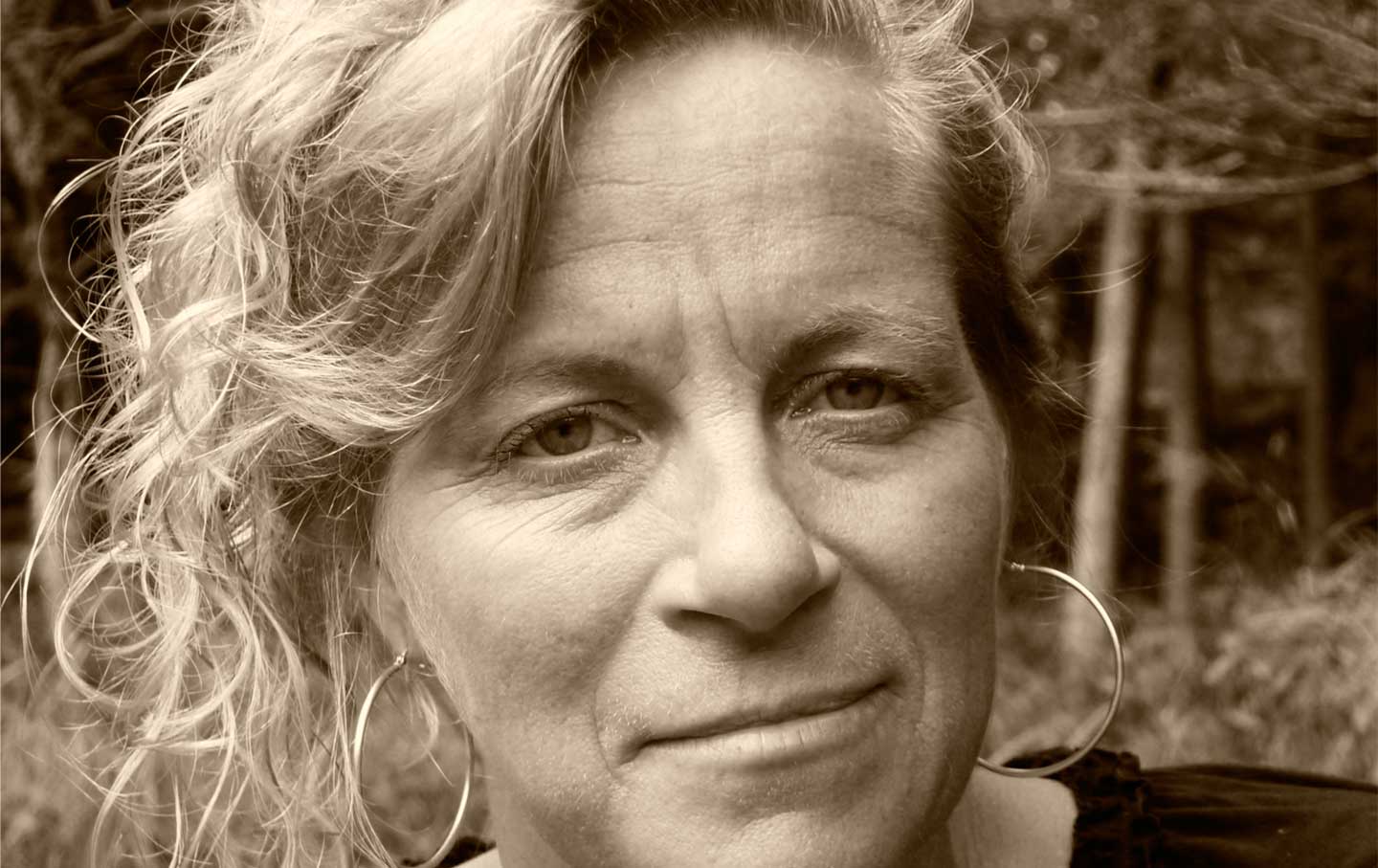
“She Usually Won.” Remembering Jane McAlevey, 1964–2024 “She Usually Won.” Remembering Jane McAlevey, 1964–2024
The Nation’s strikes correspondent believed that no one is coming to save us but us. And that we are enough.


